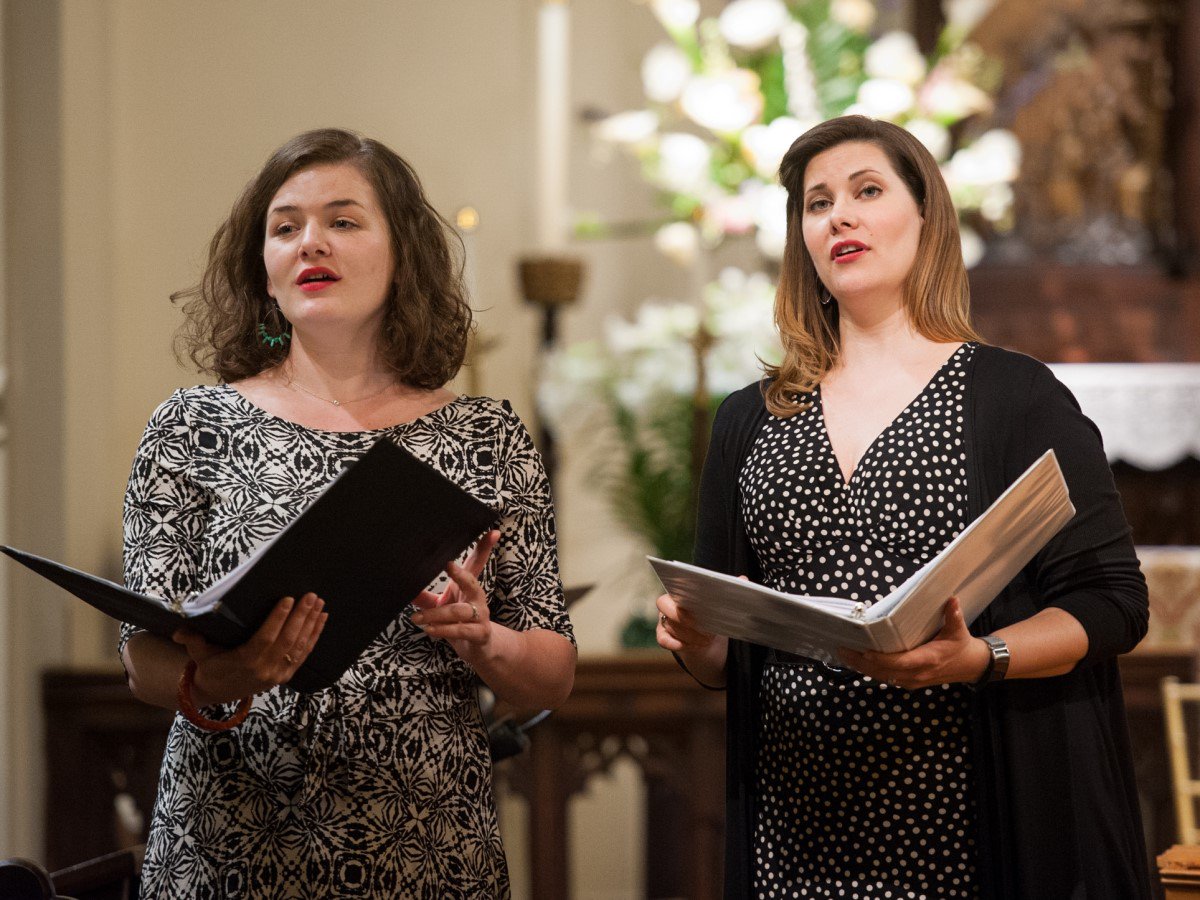Third Coast Baroque is first class in a triumphant “Il trionfo”

On Friday night the dynamic early music ensemble Third Coast Baroque (TCB) presented the Chicago premiere of Handel’s Il trionfo del Tempo e del Disinganno (The Triumph of Time and Disenchantment), the first oratorio by the great German composer.
Under the leadership of artistic director Rubén Dubrovsky, the fledgling consort—in only its third season—offered a sublime account of Handel’s first foray into a genre he would redefine, culminating in Messiah. The evening provided a further reminder of the rich depth of Chicago’s music scene beyond the currently barren Orchestra Hall.
The plot of Il trionfo is admittedly thin, the product of a libretto by Handel’s Roman patron Cardinal Benedetto Pamphili based on poems of Petrarch. The allegorical character Beauty is torn among three other stock figures—Pleasure, Time, and Disenchantment—as she grapples with whether to live for “false,” “earthly” pleasure, or rather in accord with “true” pleasure, which necessitates an acknowledgement of her own transience. The suspense lies in whether Pleasure will ultimately choose to gaze into the Mirror of Truth (ingeniously housed in the Palace of Truth), which predictably she does, leading her to reform.
The musical caliber was so high at the Chicago Temple Friday night that the lack of narrative drama was an afterthought. TCB assembled an outstanding quartet of soloists in soprano Nathalie Colas (Beauty), mezzo Angela Young Smucker (Pleasure), countertenor Clifton Massey (Disenchantment), and tenor Owen McIntosh (Time), who together made the performance not only one of the more impressive local early music outings of recent years, but also an affectively gripping experience.
As the naïve Beauty, Colas was poised and elegant. Her luminous soprano proved buoyant and agile in her faster arias, deployed to great effect in “Un pensiero nemico di pace,” and her more meditative offerings were hypnotic, especially the reflective closing “Tu del ciel ministro eletto.”
Smucker was a phenomenal temptress as Pleasure. She projected her character’s seductive aspect, singing all her arias with a robust, burnished timbre. The centerpiece of Il Trionfo is the aria “Lascia la spina cogli la rosa” (retooled by Handel as “Lascia ch’io pianga” in his later Rinaldo), which was plaintive and sumptuous in Smucker’s rendition. Following her rejection by Beauty, Smucker made “Come nembo che fugge col vento” an impassioned, virtuosic leave-taking. The two women cultivated an exquisite blend in their duet “Il voler nel fior degl’ anni,” another highlight of the evening.
Countertenor Massey was on a similar level as Disenchantment, his pure nimble tone well suited to the lament “Se la Bellezza perde vaghezza,” and making “Più non cura valle oscura” an inviting, comely reflection. Time is cast in Il Trionfo as something of a hectoring bully, and McIntosh broadcast this characterization admirably. The adroit tenor put forth “Folle, dunque tu sola presume” with apt imperiousness, and “E ben folle quel nocchier” was forceful in its impact.
The instrumental forces were on a par with the excellent vocalists. Concertmaster Martin Davids put across his concertante contributions with flair and abandon without transgressing period practice, and in this he was matched by principal second Allison Nyquist. Principal oboist Stephen Bard made rarefied contributions, lending his supple tone and incisive technique to arias throughout the evening, at times sounding truly acrobatic in florid passagework, as did his counterpart Brandon Labadie. Cellist Anna Steinhoff also made eloquent obbligato contributions, and the continuo players expertly grounded the proceedings.
The one dubious element were the cartoons by local artist David Lee Csicsko, which adorned the projected supertitles throughout Friday’s performance. These flamboyant caricatures of the Il Trionfo protagonists were in a Rocky and Bullwinkle vein and rendered in bright neon colors. While imaginative, they were jarringly out of style with the comparatively traditional music and setting.
Dubrovsky was a capable, assertive overseer for the evening. His conducting approach is clear, unfussy, and noninterventionist, allowing his stellar musicians space to make their contributions without restraint or imposition, while confidently pacing arias and recitatives. He and the rest of the TCB administration deserve major plaudits for achieving such a high level of achievement so early in their existence. Third Coast Baroque’s future projects are to be eagerly anticipated.
The program will be repeated 7:30 p.m. Saturday at Galvin Recital Hall in Evanston. thirdcoastbaroque.org
Posted in Performances


